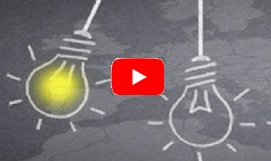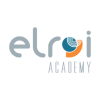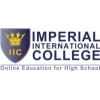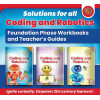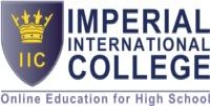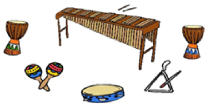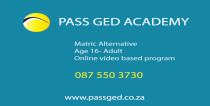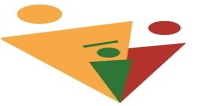Campaign against NCS in 2001
Analysis of NCS by Jan Viljoen in 2001. Recovered from Wayback Machine.
| Note: Opinions on this page are those of the author(s) and do not necessarily agree with those of the Pestalozzi Trust |
| The national curriculum statement — a moral, ethical and educational nightmare |
| by Jan Viljoen BA(Ed) B.Ed M.Ed M.Ed (Psig) The author is an educational psychologist and father. He has served 23 years in the fields of education and training which included research at the Human Sciences Research Council and lecturing at the University of Zululand and a teaching college. He now runs a private practice in educational psychology and corporate human resource development. |
|
Quitters never win and winners never quit. This statement places a tremendous responsibility on our shoulders as educators, in general, and parents in particular. A responsibility to prepare, educate, teach and train our children to function, as emotionally mature adults, in an ever-changing world with the necessary confidence and with a winning attitude. We need to provide them with the necessary skills, coping mechanisms (techniques) and competencies to deal efficiently with life's up's and down's. We need to expose them to all kinds of experiences, in an educational accountable manner. We must allow them to internalise those experiences as useful competencies to deal with and solve possible problems in future. Education is of national importance, everybody's business and an attempt to facilitate the learning process to avoid unnecessary mistakes. To learn valuable lessons from slip up's made in the past. To learn from others. With this in mind, it becomes the responsibility of each individual, parent, teacher, institution or organisations that have the interest of the youth at hart, to evaluate (criticise) the National Curriculum Statement (http://education.pwv.gov.za) in an objective manner as possible, to provide suggestions for refinement and help to establish an efficient and widely acceptable curriculum that benefits all learners. Through education, guided by the National Curriculum Statement, we set out on a journey to prepare our children for adulthood and the unknowns of the future. It is with this goal firmly in mind, that the following reflection and preliminary comments on the National Curriculum Statement are formulated. As a parent and educator I would like to prepare my own children, not to repeat the mistakes I made in the past. I want to teach them the lessons that I have already learned through my experiences on this planet. I would like to pass on my understandings, which I collected throughout the years, and the wisdom of my predecessors, providing them with an opportunity to learn and deal with problems in a more creative and efficient manner. I want them to actively participate and contribute to a society that is tolerant and that accepts, or at the very least, that accommodates the unique diversities of mankind. It is with this mindset that I examined the National Curriculum Statement, and it is also with this mindset that I formulate my initial comments. It seems to me that the intended outcomes of the curriculum support my present educational viewpoint and, if correctly applied, would assist in achieving a changed society in future. For the sake of the reader, lets briefly consider the present critical outcomes as stated in National Curriculum Statement and the "intended" results to be expected. Stated critical outcomes of National Curriculum Statement:
National Curriculum Statement intends to enable learners to...
The critical outcomes and intended results seem like very noble ideas, and it seems that it could assist us in achieving the ultimate goal of preparing our children to participate efficiently in and help to establish a changed society in future. However, curriculum outcomes coupled with intended results, suggest some kind of assessment. And assessment can only be done against certain defined criteria or parameters to determine the efficiency of the learning process and/or to judge the competency level of the intended outcomes or results. Critical outcomes and the intended results of the National Curriculum Statement do not personally present me with a problem as such. As an educator and parent, operating outside the present school system, I view the National Curriculum Statement outcomes as an attempt to create a new, more positive and beneficial mindset. Still it doesn't present me with a problem, because children of today need to acquire a different mind set, from our own existing mind sets, to efficiently deal with the demands of an ever-changing modern world and society. Quite a serious problem arises, however, once assessment comes into play. Firstly because, it is irresponsible (unfair, unaccountable, unethical, bad manners) to "measure", "evaluate" or "judge" the mind set "success level" of any individual and, secondly, it is a subtle way of exercising "mind control", through the already established parameters indicated in the National Curriculum context. Regardless the noble and applaudable intentions of the National Curriculum Statement. Based on research findings and numerous discussions with people, also serious about education, I would like to formulate and raise the following concerns: Doesn't the National Curriculum Statement attempt to replace an "outdated" mind set, previously unacceptable for the majority of people, with a "new" mind set, acceptable for the majority of people today? Thus, the question arises: Is the National Curriculum Statement focussed on the essence of education or on education's advantages for today's political games? Answers to the above questions are extremely complex and issues for thousands of hours of discussions. Therefore, I do not want to provide you with a final conclusive answer, merely another perspective and some important aspects to consider or discuss in time to come. I urge you not to unconditionally accept my present viewpoint on the National Curriculum Statement and keep an open-mind to draw your own conclusions on the matter. Presently I am still in the process of exploring the implications of the National Curriculum Statement for accountable educational practises, and the following comments cannot be regarded as a final and conclusive viewpoint. Only a preliminary attempt to set you thinking and to stimulate some fruitful discussions and/or correspondence. As far as I am concerned, a person's mind set, based on a sound philosophy of life, is unique and individualistic in nature, and there is NO ethical justifiable manner in which I, nor anybody else, could assess or judge the "correctness" of any individual’s mind set. Luckily, it is not my opinion alone and hints of my opinion are already entrenched in our present constitution. Before I continue, please consider the following: The declared aim of this National Curriculum Statement are to...
By now it should be quite clear to you that I am a huge fan of individualism and the diversity of man. In that sense I support equality wholeheartedly. BUT I would like to state quite explicitly that EQUALITY does not, per definition, mean "the same". When equality implies the same, it has the consequence that we do not cater for the diversities and uniqueness of mankind. Such diversities among people are a fact and they definitely exist. E.g. all people do not learn at exactly the same speed. There are slow learners and fast learners - individuals who do not process knowledge at the same speed or rate, there are creative people and less creative people, there are blind people and people who can see, there are people who prefer to take care of animals and there are people who prefer taking care of the homeless. It takes all kinds of people to make the world go round, and we need to exercise extreme care NOT to over-politicise certain concepts and degrade differentiation (diversities/uniqueness) to discrimination and "evil" educational practices. With the above in mind please reconsider the intended outcomes of the National Curriculum Statement. What initially seems like noble goals, tend to acquire a sinister ring to them once you consider the assessment of achieving such goals. For instance: Who is going to determine the parameters of responsible citizenship, of aesthetic sensitivity, of effective communication, of understanding the world, creativity, improvising, considering others, eagerness to explore, taking risks, critical evaluation.... Me, you, politicians, a pastor, Mandella, groups of Christians, Moslems, the Bible, the Koran, Hindoes, Scientists, Educationalists, Satanists? Or do we establish an "assessment-parameter-selection-committee" representing all possible diversities and believe systems of man? Apart from being impractical and completely unacceptable, any attempt to attach parameters to a "politically correct" mindset of people will effectively and swiftly kill the free spirit of man, the creativity and exchange of ideas. It destroys cooperation, cohesion and teamwork. It broadens the gap en fuels conflict amongst different ethnic groups. Assessing the outcomes of the National Curriculum Statement based on certain parameters, even if only vaguely stated, could efficiently counter-act what was intended in the first place. Far fetched? Maybe. But what about Hitler, Idi Amin, the mass suicide incident in Jones Town, ethnic clashes in Rwanda? All initially promoted noble ideas, which later become judgmental in nature and prescriptive of the mindsets of people, ignoring the diversities of man. Considering the National Curriculum Statement in this context makes one wonder why history keeps on repeating itself? Why does mankind persistently continue to change the face of an age-old problem (intolerance of differences) and then repeat it? What happened to the golden rule of life, do unto others that you want them to do unto you? It is quite evident that education in general and The National Curriculum Statement in particular, is in a catch 22 situation at present. On the one hand, we feel comfortable with the intended outcomes, but on the other, once it becomes educational goals, we need to assess it according to selected criteria. When you apply criteria, you could effectively destroy what was intended in the first place. You will end up with moral, ethical and educational nightmare. It is, however, possible to avoid this nightmare. We should assess only what is measurable according to the criteria of validity and reliability, and we should not invade children’s privacy. An education system that respects our constitution and our Bill of Rights will assess technical skills such as: Reading skills, numerical skills, ability to reason in a logical manner, observation skills, language skills, constructing a bridge, operating on a patient, techniques to teach. It will treat a mindset and a philosophy of life as "holy ground" and not attempt to assess (judge) an individual’s: coping mechanisms, life skills, survival techniques, creativeness, contributions to life... as either correct or incorrect. A philosophy of life, resulting in a mindset, depends on the person's interaction with his/her environment, his/her priorities in life, his/her values, situations and circumstances. No one has the right to intrude, unless specifically invited or requested by an individual to become involved. Then and only then, may anybody take the liberty to assess in terms of being effective or ineffective in a situational context. To assess these things with the intention to issue a certificate of competence is extremely arrogant. Further more: How would it be possible for one overworked individual to accountably assess 40 individual's interaction with their environment? Our right to human dignity and freedom of choice is already entrenched and protected by our constitution. Are we going to insist on staying in control of our own future? ...OR... Are we going to be passive onlookers, complaining in "secret", and slowly surrender control of our own future to others? When you, after reading this, have constructed a definite view on the present educational developments in South Africa, I would love to hear about it. It would be quite interesting, maybe an eye opener, to see who agrees or disagrees and why? Forward your opinions and view points to me by e-mail (This email address is being protected from spambots. You need JavaScript enabled to view it.) or send me a fax at [27] (12) 348-3950. Some points to ponder in the meantime:
|
Events
Legal & Research
Homeschooling and the law
Home schooling was recognized in 1996 in Section 51 of the SA Schools
+ ViewCentres
Homeschool ABC
Support
Curriculums
Imperial International College
Imperial International College offers Online Education for High ...
Elroi Academy (Gr 8 - 12)
Elroi Academy – Top-Rated Distance Education Provider in South ...
Frequently Asked Questions
-
Do home learners get homework?
In general all their schoolwork is homework and they do not get to do extra work in the afternoons. A tutor might give some extra work to complete...
-
Do home learners sometimes wish they were in school and were normal?
They generally like being homeschooled. Some homelearners go to school for the experience but many return to homeschooling as within the homeschool...
-
Do homeschoolers take holidays?
Yes, they take breaks. Some homeschool families follow the public school year calendar especially if they are involved in sport and music...
-
Do I need to be a qualified teacher?
No. Research has found no correlation between the qualification of the parent and the academic performance of the child. Research shows that...
Has no content to show!



